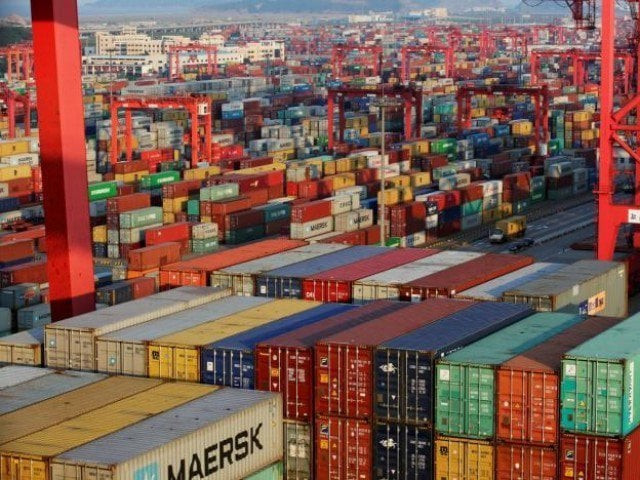Govt set to approve 6.2% GDP growth target for next year
APCC will approve macroeconomic framework and federal PSDP on Monday

PHOTO: Reuters
The Annual Plan Coordination Committee (APCC) will approve fiscal year 2018-19’s macroeconomic framework and federal Public Sector Development Programme on Monday. Historically, APCC meetings have been held after the approval of the Budget Strategy Paper from the federal cabinet.
However, this year, the government has convened the APCC meeting without first securing the cabinet’s approval of the budget strategy paper, which has denied the federal ministers the right to give their input.
PM’s aide going to attend IMF meetings just days before budget
After the APCC’s approval, the National Economic Council is the final authority to approve the macroeconomic framework. The NEC is headed by the country’s prime minister and the provincial chief ministers are its members. The NEC is also tentatively scheduled to meet next week.
The finance ministry has presented the Budget Strategy Paper to the premier and will now present it in the next federal cabinet meeting, said Dr Miftah Ismail, advisor to prime minister on finance. To a question, the advisor said that the federal cabinet can always amend anything it wants even after the macroeconomic framework’s approval by the APCC.
The government has advanced the budget calendar by about five weeks, as its five-year constitutional term is going to end on May 31. President Mamnoon Hussain called the budget session of the National Assembly for April 27. Both mainstream political parties, the PPP and PTI, are opposing the government’s decision to announce the budget for next year.
According to Article 86 of the Constitution, the interim government can authorise expenditures during the month of June from an already approved budget for the current fiscal year for a period not exceeding four months in any financial year, recently wrote former finance secretary Dr Waqar Masood.
Budget proposal: CAP calls for exemption from import duties
The prime minister, who also holds the portfolio of the finance minister, will again have a look on the Budget Strategy Paper on Saturday (today). In the last meeting, the PM had objections to certain macroeconomic projections and directed the finance ministry to try to make a realistic framework, said sources in the ministry.
The APCC will approve the macroeconomic framework that envisages 6.2% Gross Domestic Product growth rate for fiscal year 2018-19, starting from July. The proposed target is slightly higher than the provisional economic growth rate of 5.8% for the outgoing fiscal year.
However, the 6.2% target is optimistic, as there are apprehensions that in the next fiscal year Pakistan’s economy could slow down due to problems on the external sector front. This week, the Asian Development Bank (ADB) stated that Pakistan’s economy will slow down to 5.1% in fiscal year 2018-19.
There was a considered view in the finance ministry that the next year’s target should be set around 6% due to these factors.
The government is aiming at 3.7% growth in the agriculture sector for the next year, which is slightly better than the 3.3% rate for the outgoing fiscal year. The industrial sector is projected to grow by 7.3%, better than outgoing fiscal year’s rate of 5.8%. The services sector is projected to grow by 6.6% against the outgoing year’s growth rate of 6.4%.
The inflation target may be set at 6%.
The APCC may set the investment to GDP target at 17.2% for the next fiscal year, as against this year’s projected rate of 16.4%. The national savings to the GDP target may be set at 13.4% as against 11.4% in the outgoing fiscal year.
The planning ministry has proposed the current account deficit target at 3.8% of the GDP for the next fiscal year, as against estimated 5% deficit in this fiscal year. However, the ADB has projected 4.5% current account deficit in the next fiscal year, suggesting that the country’s external account will remain under pressure for yet another year.
The sources said that the next year’s current account deficit will remain above 4% and the target should be set close to the realistic assumption aimed at preparing a realistic external financing framework. The IMF has projected Pakistan’s gross external financing need at whopping $27 billion for next fiscal year.
The finance adviser has earlier said that the budget deficit target for the next fiscal year will be 4.5% of the GDP. But the ministry sources said that the new target will be close to 4.9% of the GDP, if the government takes realistic projections of the non-tax revenues.
The macroeconomic framework numbers may be slightly adjusted after the Budget Strategy Paper review by the PM Abbasi.



















COMMENTS
Comments are moderated and generally will be posted if they are on-topic and not abusive.
For more information, please see our Comments FAQ